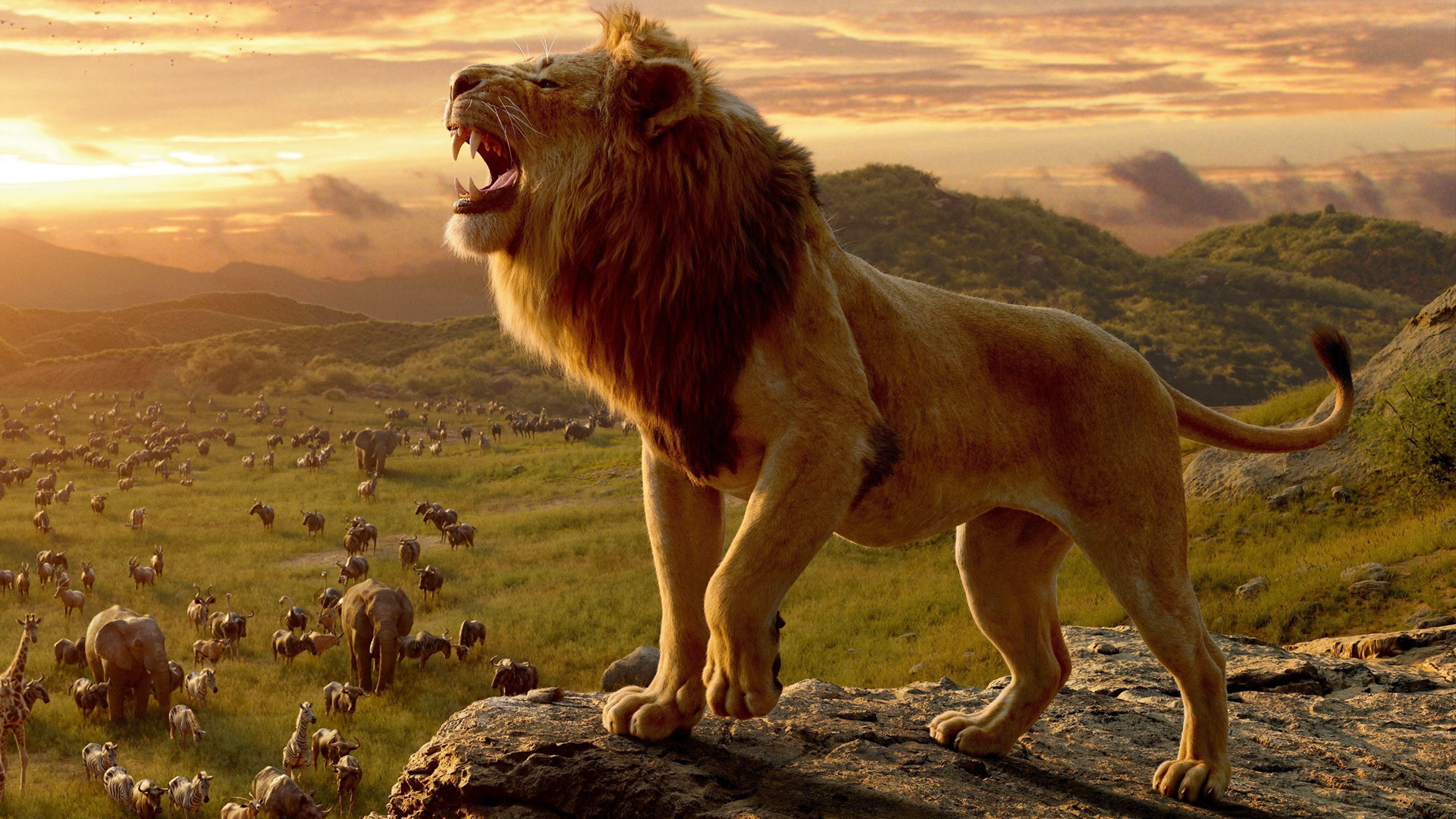Disney's Uncanny Valley
As with pretty much all of Walt Disney Studios’ pseudo-live-action remakes of its beloved animated classics to date, the 2019 edition of The Lion King is good in all of the ways you might guess. In all other ways, it is unnecessary.
When Beyonce Knowles sings as Nala, it is gripping stuff. When she is just plain talking, not so much. When John Oliver brings his trademark apologetic and faux-proper humor to the voice of royal assistant Zazu and when Billy Eichner dials Timon’s sarcastic flamboyance up to shouting volume, there are new laughs to be found. With pretty much everything else, the ground of this new film feels as pounded in to dust as the canyon where Mufasa tumbles to his death.
Look, it is easy to be cynical about Disney. Viewed through a certain lens, the House of Mouse has been stifling artistic freedom since the days that Walt prowled the halls in Los Feliz. That is not my particular lens, though. From the days of the Silly Symphonies to at least the near-present, Disney as a brand has mostly (though not always) symbolized the outer bounds of imagination and possibility.
But this new version of The Lion King - this finely made, utterly numbing update to a not-that-old animated classic - has done more than I anticipated it would to erode my faith that Disney going forward will maintain those signature qualities.
There’s more swirling around here than just the film, it must be acknowledged. The recently finalized acquisition of 20th Century Fox also feels out of step with the Disney of the past - even the one that has been more acquisitive in recent decades by adding Pixar Studios, Marvel Studios and Lucasfilm to its stable of properties. The Fox merger feels run of the mill - dumb even - the kind of obvious, messy, unstrategic market-share grab that an unspecial brand in, say, plastics would go for.
It doesn’t fit. It just is.
On a more anecdotal level, I’ve had fit and Disney on the mind lately, having spent part of last week at Disneyland - maybe the most special Disney property of all. A new part of the park, Star Wars Galaxy’s Edge, just opened there. It is spectacular, especially at night, but even it feels a little weird and tacked on in the context of the rest of the park, much of which still has original rides from when it opened in 1955. Perhaps time will cure that sensation. Or perhaps this is another sign of how unwieldy Disney is becoming.
Unwieldy is another word to sum up the new version of The Lion King. It has the beats of the original - all the “Member Berries” you can eat - and all the extra exposition you would never ever ask for, including more Pumbaa farts and an unrequited love sub-plot between Scar and Sarabi that (I guess?) offers extra motivation for the villain’s coup. The picture itself looks so much like Planet Earth that you half expect David Attenborough to belt out “Nants ingonyama.” And, sure, that’s cool. The underlying technology is a marvel to behold.
But technology is only half of the Disney equation. To quote Walt himself:
“Until a character becomes a personality it cannot be believed. Without personality, the character may do funny or interesting things, but unless people are able to identify themselves with the character, its actions will seem unreal. ... Without personality, a story cannot ring true to the audience.”
Where is the story here? Where is the connection to this version of these characters, to anything authentic and not rooted in flickering nostalgia for what has come before?
This iteration of The Lion King offers masticated and regurgitated personality. It is devoid of the humanity of the hand-drawn original (and, yes, we need hand-drawn to come back in a big way). It feels more like a cash grab than any Disney feature film I can think of. As the Mouse also swallows up more than half of the industry, it suddenly seems fair to wonder if the Mouse’s consolidation of financial power will unintentionally loosen its hold on hearts and minds.

